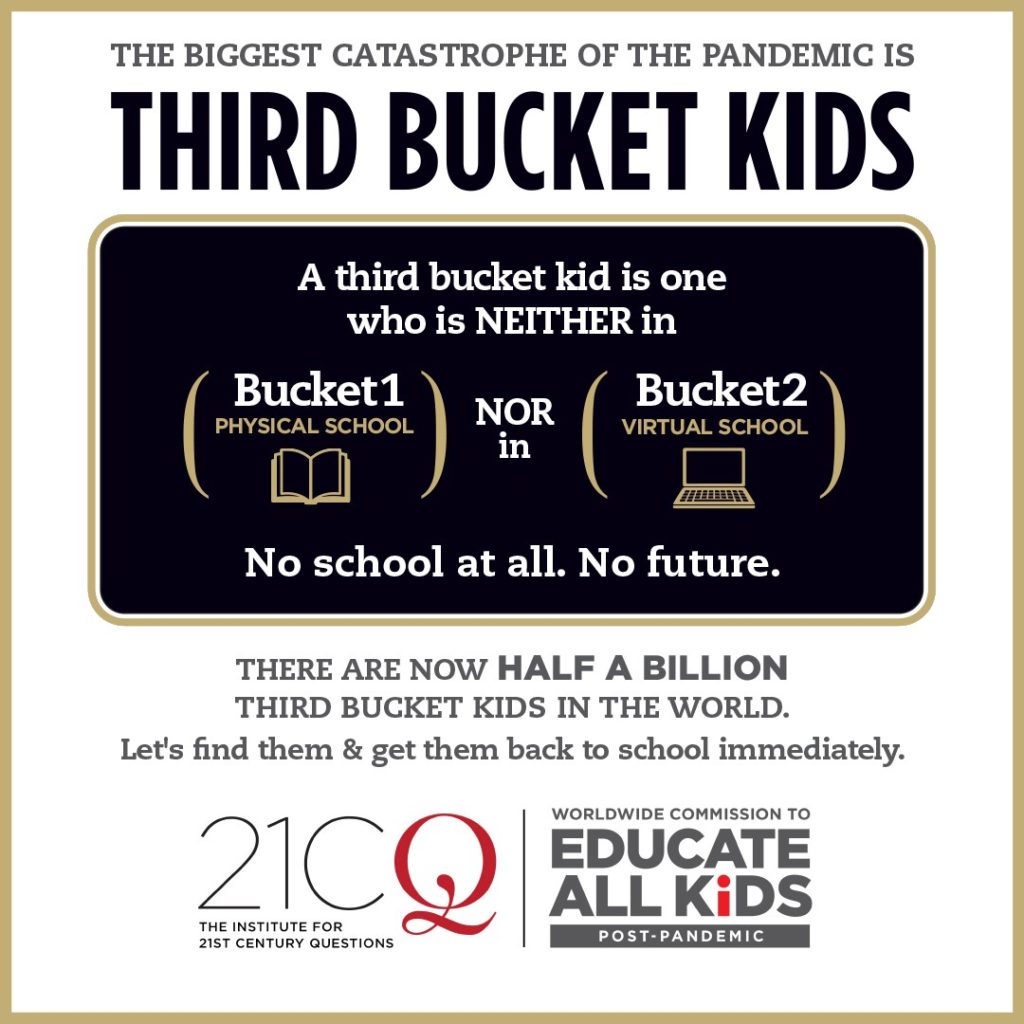Education and Learning Post-Pandemic: What’s Next?
I have been inspired by the Worldwide Commission to Educate All Kids (Post-Pandemic)discussions about ‘third bucket kids’ – those who have not been in a physical or virtual school, but NO SCHOOL- estimated to be half a billion in the world, 200,000+ in Canada. What a powerful platform for frank conversations! My wonder is -what are we inviting disconnected students back to?
During the May 21 Summit, a participant from Lahore grabbed my attention when she commented that we now have an incredible opportunity to do something extraordinary. How might we, at a systems and individual level, support all children who require our action; address a transformation of education and learning!
There is a global effort to track students who have ‘gone missing’. Discussions regarding what has occurred for them to be disconnected from school – ‘ousted’ or from systems collapse, has led to ways in which various countries might track and find missing students, and reintegrate them. The need to address the impact of trauma, not attending school, and support to those who have been connected to schooling, presents several entry points to plan for.
For those who HAVE been schooled, we are learning that there have been benefits for many students during the pandemic: learning to be a self-paced self-directed learner, completing tasks in a short timeframe thereby having time to pursue other interests, technical literacy, enjoying deeper dives into content, enjoying asynchronous learning, to name a few.
Pre-pandemic, many students were not engaged in learning. Alternative learning opportunities provided avenues that require traditional educational structures to closely examine what needs changing. Students have much to say about what their needs are. Who is listening to them?
Social emotional learning and academics must go hand in hand. How do we support educators to connect with students and get them back into the learning community? What re-entry methods might we use, what might more flexible schooling look like? Might piloting second opportunity schools provide opportunities for those who have not attended for over a year, be an option?
LFBC Board members reflected on the past year, and discussed our focus for the next year. Working with staff, parents and students to re-integrate our 3rd bucket kids, and those who have struggled with staying engaged in the learning process, requires exploration of what is required for long-term success for our students. A systemic approach to examine schooling offers the opportunity to transcend the pandemic: address trauma informed practice, inclusion with adaptation, know where each child is, and provide opportunities that focusses on what each child and community needs.
Student agency is required in order for us to meet their learning needs and examine the education structure that they are returning to. Schools need to be excellent, energetic, and interesting. Our focus this year is to be intentional in listening to the voices of our clients, build trust and forge positive relationships, and seek insight into the those who are finding success.
Submitted by:
Suzanne Elliott
President
Learning Forward BC

Comments are closed.